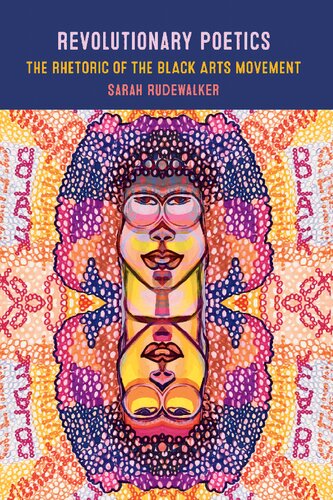

Most ebook files are in PDF format, so you can easily read them using various software such as Foxit Reader or directly on the Google Chrome browser.
Some ebook files are released by publishers in other formats such as .awz, .mobi, .epub, .fb2, etc. You may need to install specific software to read these formats on mobile/PC, such as Calibre.
Please read the tutorial at this link: https://ebookbell.com/faq
We offer FREE conversion to the popular formats you request; however, this may take some time. Therefore, right after payment, please email us, and we will try to provide the service as quickly as possible.
For some exceptional file formats or broken links (if any), please refrain from opening any disputes. Instead, email us first, and we will try to assist within a maximum of 6 hours.
EbookBell Team

4.4
72 reviewsIn Revolutionary Poetics, Sarah RudeWalker details the specific ways that the Black Arts Movement (BAM) achieved its revolutionary goals through rhetorical poetics―in what forms, to what audiences, and to what effect. BAM has had far-reaching influence, particularly in developments in positive conceptions of Blackness, in the valorization of Black language practices and its subsequent effects on educational policy, in establishing a legacy of populist dissemination of African American vernacular culture, and in setting the groundwork for important considerations of the aesthetic intersections of race with gender and sexuality. These legacies stand as the movement’s primary―and largely unacknowledged―successes, and they provide significant lessons for navigating our current political moment.
RudeWalker presents rhetorical readings of the work of BAM poets (including, among others, Amiri Baraka, Gwendolyn Brooks, Margaret Burroughs, Sarah Webster Fabio, Nikki Giovanni, Etheridge Knight, Audre Lorde, Haki Madhubuti, Carolyn Rodgers, Sonia Sanchez, and the Last Poets) in order to demonstrate the various strands of rhetorical influence that contributed to the Black Arts project and the significant legacies these writers left behind. Her investigation of the rhetorical impact of Black Arts poetry allows her to deal realistically with the movement’s problematic aspects, while still devoting thoughtful scholarly attention to the successful legacy of BAM writers and the ways their work can continue to shape contemporary rhetorical activism.